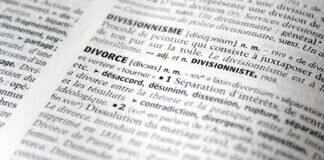The Los Angeles City Council made a significant decision on Friday to approve substantial trash fee increases, aiming to generate revenue and address a billion-dollar budget deficit. In a 10-1 vote, the council directed city attorneys to prepare an ordinance that would raise fees for approximately 740,000 customers. Council members argued that the city has been shouldering the cost of trash pickup for too long, necessitating these adjustments.
The proposed fee hikes will impact owners of single-family homes and duplexes the most. Trash fees for these properties are set to rise by 54% in the upcoming budget year, increasing from $36.32 to $55.95. Similarly, fees for smaller apartment buildings with three or four units will also see a significant jump, climbing from $24.33 to $55.95 per unit. These fees will continue to escalate annually until 2029, ultimately reaching $65.93 across all categories. For single-family homes and duplexes, this translates to an 81% increase compared to current rates, while the fee per unit in smaller apartment buildings will nearly triple.
On residents’ bimonthly bills issued by the Department of Water and Power, the fee increases will be reflected under the “Solid Resource Fee” line item. Notably, larger apartment buildings are exempt from these planned hikes. Property owners have the option to challenge the fees through Proposition 218, a California voter-approved law from 1996 that mandates informational mailings and a 45-day notification period before any fee adjustments can take effect. If a majority of owners submit written protests, the proposed fees can be overturned.
Larry Gross, the executive director of the Coalition for Economic Survival, expressed concerns about the fee increase’s regressive nature, emphasizing that landlords are likely to pass on the added costs to tenants. Low-income residents are expected to bear a disproportionate burden from these fee hikes, as they will be required to pay the same amount as wealthier residents. Councilmember Adrin Nazarian, representing the eastern San Fernando Valley, echoed these worries during the council meeting, casting the sole dissenting vote. He highlighted the substantial initial increase that residents of four-unit buildings would face, noting the disparity compared to homeowners in affluent neighborhoods.
City leaders have assured an expansion of the program to assist low-income residents in meeting the fee requirements. They also pointed out that the last trash fee hike occurred 17 years ago, underscoring the necessity of the current adjustments. Failure to implement the fee hike would result in a $200 million shortfall in the general fund for the next budget year, as the city has been subsidizing trash collection expenses.
The fee increase aligns with the city’s efforts to address a nearly $1 billion budget deficit and the looming threat of job cuts. Mayor Karen Bass is expected to unveil her budget proposal later this month, outlining strategies to bridge the financial gap. The deficit has been partially attributed to escalating labor costs, including recent pay raises for certain city employees, such as police officers and firefighters, approved by Bass and the council.
Critics, including the Howard Jarvis Taxpayers Association, have condemned the trash fee hike, citing mismanagement, overspending, and unaffordable labor contracts within city governance. The association warned of potential taxpayer backlash and business exodus from Los Angeles due to unfavorable tax policies and revenue losses.
During the council meeting, employees from the Bureau of Sanitation voiced their support for the fee increase. Charles Leone, a coordinator for Service Employees International Union 721 representing sanitation workers, commended the council’s decision, stating that the fee adjustment should have been implemented years ago. He emphasized the challenging nature of sanitation work, highlighting the daily efforts of workers in addressing various community issues, including homelessness.
In a similar move, the council had raised sewer fees for all property owners the previous year. Notably, landlords of rent-stabilized units, which constitute a significant portion of the city’s housing stock, are typically unable to transfer water costs, linked to sewer expenses, to their tenants, as clarified by city officials.
As Los Angeles grapples with financial strains and seeks to realign its budget priorities, the trash fee increases represent a contentious yet necessary step in securing the city’s fiscal stability. Balancing the need for revenue generation with concerns about equity and affordability will be paramount as residents and stakeholders navigate these significant changes in municipal policy.
Remember, when it comes to trash fees and budget deficits, the decisions made by local authorities can have far-reaching implications for the entire community. It’s crucial for residents to stay informed and engaged in discussions about financial matters that impact their daily lives.














